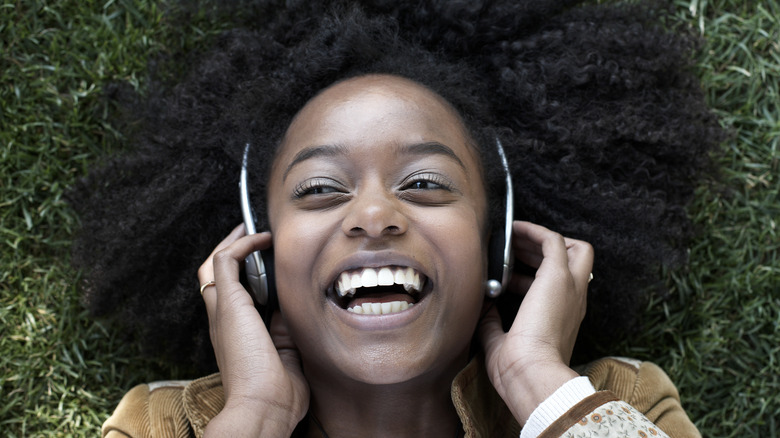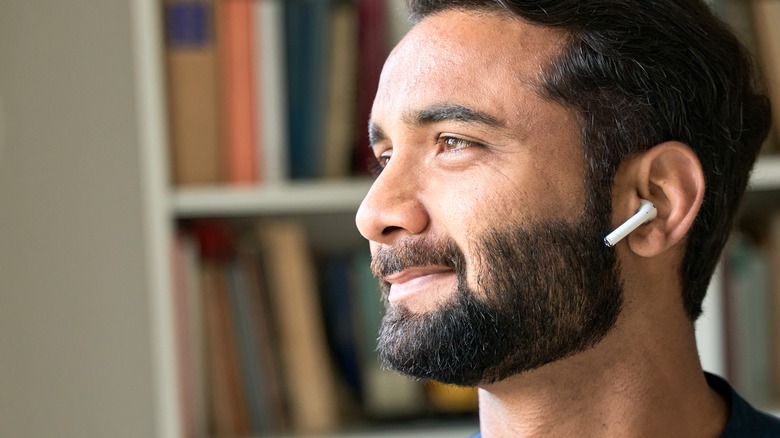Audiologist Gives Tips On How To Prevent Hearing Loss If You Use Headphones
From Bluetooth earbuds to surround-sound headphones, many of us walk around with some form of audio streaming into our ears. Whether it's a podcast, playlist, or phone call, are there any health risks to having so much sound shooting directly into our ears all day long?
"Prolonged exposure to loud volumes through earbuds or headphones can damage hair cells in the cochlea, which play a crucial role in transmitting sound to the brain," explains Amy Bishop, Au.D., CCC-A, Corporate Audiologist at Lucid Hearing, in an exclusive interview with Health Digest. "When these hair cells are damaged, their performance deteriorates, leading to noise-induced hearing loss," she says. Dr. Bishop notes that any person can be susceptible to noise-induced hearing loss if they use this technology. "Noise-induced hearing loss can affect anyone who listens to earbuds or headphones at a loud volume for an extended period," she states.
Although the damage often takes place immediately, Dr. Bishop explains that signs of hearing loss may not become noticeable until much later. "Cochlear damage can occur within minutes, depending on the volume. However, it usually does not cause immediate, noticeable hearing loss," she states. "This is why noise-induced hearing loss is challenging to identify. Changes in hearing can be gradual, and individuals may not perceive them until they become significant."
Dr. Bishop goes on to say that while age-related hearing loss can compound the effects of noise-induced hearing loss, it doesn't actually worsen the damage. Rather, it's continued exposure that will exacerbate the condition.
The type of headphones you use matters
"Noise-induced hearing loss will continue to progress with continued exposure to loud sounds," Dr. Bishop states. "Unfortunately, once the damage has occurred, it is generally irreversible," she notes. "Age-related hearing loss, known as presbycusis, can also contribute to hearing difficulties, particularly when combined with existing noise-induced hearing loss."
To help prevent hearing loss from headphone use, Dr. Bishop offers some specific tips. "First, opt for over-the-ear headphones instead of earbuds, as they offer better sound quality and block out surrounding noise, promoting safer listening levels," she advises. "Second, use noise-canceling headphones or earbuds to reduce ambient noise, enabling you to listen at lower volumes," Dr. Bishop states. "Third, adhere to the 60-60 rule: no more than 60% of the volume for no more than 60 minutes at a time."
Offering her final tip, Dr. Bishop says it's important to consult with a professional if you pick up on early signs of noise-induced hearing loss. "[I]f you have concerns about your hearing, consult an audiologist or licensed hearing aid dispenser for a hearing test," she states. "Everyone should have a baseline hearing exam, followed by updated tests at least every couple of years to monitor their hearing." In doing so, patients can help get ahead of any potential hearing issues in the future. "Early detection and treatment for hearing loss leads to better long-term outcomes," she says.


